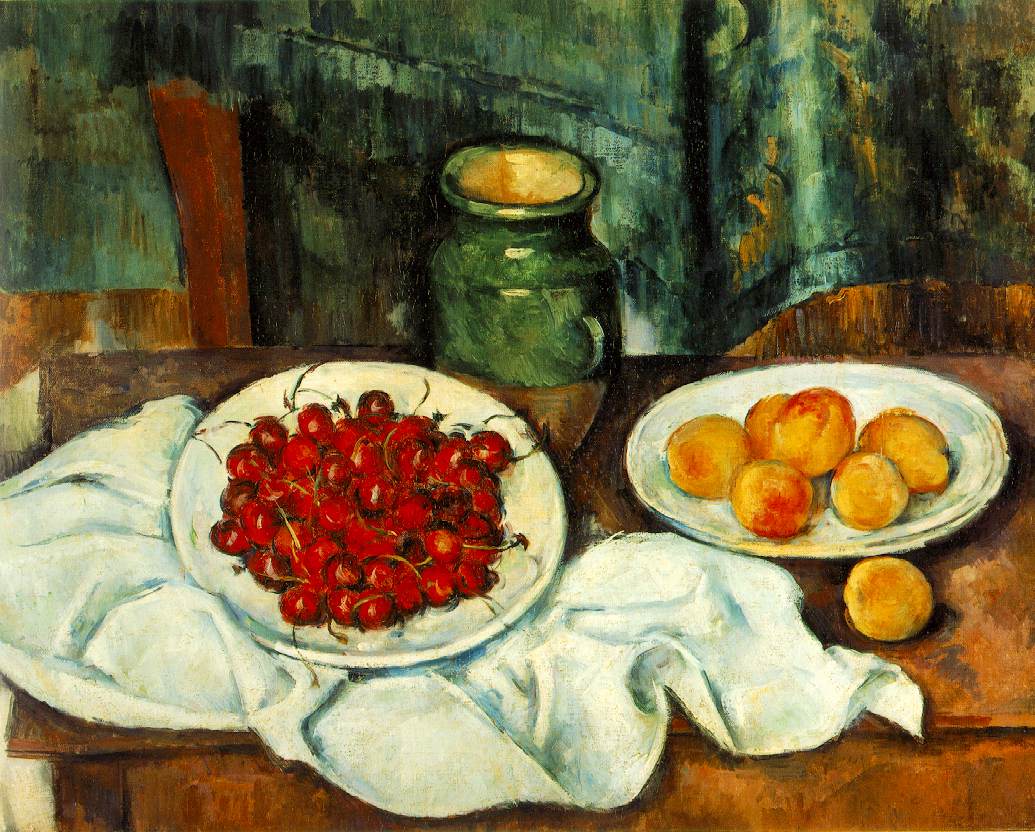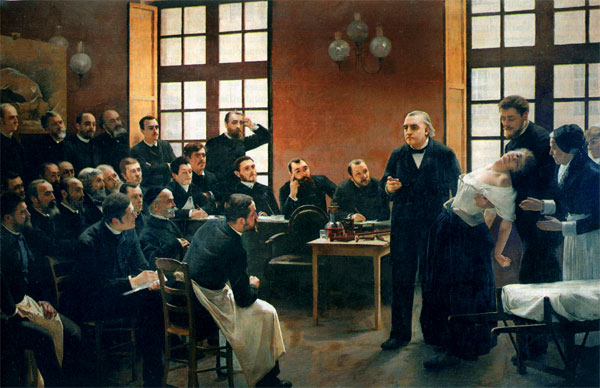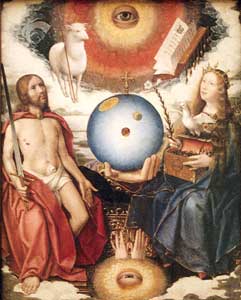Jan Patočka's interpretation of some of the basic concepts within
Being and Time in the fifth of his
Heretical Essays in the Philosophy of History explores and exploits a point (one point of many) on which the whole of that treatise turns: the relationship of everydayness (
Alltäglichkeit) to authenticity (
Eigentlichkeit). Recently in America, this point (again, it is one of many crucial points, however) is only explored explicitly with comparable depth by Bill Blattner in his work on Heidegger's notion of temporality (though Hubert Dreyfus' entire presentation of Heidegger could be said to stem from or be founded upon the implicit exploration of this distinction, specifically his conviction that the first division of
Being and Time is actually wider in philosophical import than the second: such an assertion can only arise from a move similar to Patočka's and actually needs to be seen as this). The problem revolves around how there is no term that Heidegger opposes to everydayness that easily bridges the gap between everydayness and authenticity: the only mediator is inauthenticity (
Uneigentlichkeit). So it is here that Patočka must begin (that is, it is here that any analysis of this problem in
depth must begin: so while many people analyze the relationship between authenticity and everydayness, it is only with respect to clarifying the relationship of
inauthenticity to everydayness in with a view to explicating authenticity that we can have an explicit, in depth analysis of the real unity or lack of unity of the treatise at this point--this is just to clarify the above).
Patočka first makes inauthenticity and authenticity a parallel movement to the movement of everydayness. He then introduces a distinction within everydayness that seeks to clarify the second division's movement towards authenticity in being-towards-death. Put simply, he introduces another distinction in opposition to everydayness, the exceptional or the holiday ("holiday" of course seems a little too playful at first, but it becomes interesting when one reads Heidegger within a more Marxist framework, focused as it is on leisure and the work in leisure capitalism creates--see Adorno especially for this). Saying that Patočka merely introduces another distinction is indeed putting it simply, however, because this fundamentally understands the care-structure with more clarity than Heidegger himself understood it in the text. Whether Heidegger would have subscribed to this interpretation is of course questionable, but that is what makes Patočka's reading as much of an expression of a unique philosophy of his own as it is a reading of Heidegger--thus we had to begin with the vague expression that this is an "interpretation of some of the basic concepts" within the Heidegger's book. The specific alteration of the care-structure accomplished here is a clarification of the component of "falling" (
verfallen) and its relationship to everydayness, which remains hazy in the book (even though one can piece together what Heidegger might be getting at, it lacks the same phenomenality as mood and understanding, for example). But I'll leave this only as a suggestion for now: the important thing is to outline how Patočka's distinction then allows for two binaries (inauthenticity/authenticity, everydayness/exceptionality) to set themselves up in relation to each other.
Exceptionality allows for a transition between everydayness and the authentic/inauthentic distinction because it retreats from the everyday without yet placing itself within the authentic/inauthentic dichotomy. That is, it suspends, as it were, the relation of everydayness to authenticity and inauthenticity only to have it be the place where this relation becomes most pressing as to how one is disposed in it already. In Heidegger, this becomes the space of being-towards-death. But whereas Heidegger quickly articulates this moment so that it seems to fall within the sphere of everydayness, Patočka sees it as a sort of comportment all in itself distinct from the everyday and its temporal orientation. Patočka explains this in the following way:
The exceptional, the holiday also unburdens [like everydayness], though not by escaping from responsibility [Patočka often calls authenticity "responsibility"], but rather by revealing that dimension of life in which the point is not the burden of responsibility and the escape from it but where, rather, we are enraptured, where something more powerful than our free possibility, our responsibility, seems to break into our life and bestow on it meaning which it would not know otherwise.
-"Is Technological Civilization Decadent and Why?", Heretical Essays, 98-99.
Patočka here is actually showing that there can be two senses of authenticity if one accepts a link between everydayness and inauthenticity/authenticity that is more distinct. The transformed everydayness of the exceptional itself is a form of authenticity that escapes the thrust within the authenticity/inauthenticity dichotomy, which is an existential potentiality for one's possibilities, and moves towards a type of authenticity that focuses or places the accent upon the ek-static nature of this potentiality. While Heidegger brings them together (and perhaps rightly), Patočka tries to assert that authenticity and everydayness can be understood more coherently if we understand them to be linking up with each other within a specific, delimited situation whose style is slightly different than either. Authenticity still bears upon this sphere, and in fact bears upon it all the more because of its distinctness, but its constitution has less to do with this authenticity conceived of as potentiality, or ek-stasis conceived as a standing out of oneself
towards possibilities (existential facticity/factical existentiality). This ek-stasis simply stands out of itself to stand out of itself, and while Heidegger would like this experience to precisely be that authenticity he speaks about, Patočka asserts that this overlooks something: namely, religion.
For it is the origin of religiosity traditionally conceived (the experience of the sacred and profane) that enters into this experience of impending responsibility/authenticity that is not an authenticity proper (which will be seen as an overcoming of this sacred and profane sphere and constituting actual religion proper). Patočka calls this pre-religious experience of impending responsibility/authenticity "the dimension of the demonic and of passion:"
In both, humans are placed at risk, however, they are not simply escaping from themselves into the "public realm," into the ordinary everyday...
-"Is Technological Civilization...", 99
It is the experience of being-towards-death ripped from out of its context in Heidegger as an experience of authenticity as potentiality towards possibilities (existential facticity/factical existentiality). It makes possible this authenticity only by refusing its hold which impends on it all the more, and this makes it all the more dangerous:
Face to face with this phenomenon, we tend to forget the entire dimension of the for ourselves [authenticity proper], forget responsibility and escape, letting ourselves be drawin into a new, open dimension as if only now true life stood before us, as if this "new life" had no need to care for the dimension of responsibility.
-"Is Technological Civilization...", 99
Here we get a strict active forgetting (a la Nietzsche) precisely towards that openness to the there in authenticity--a forgetting that brings us away from our potentiality, alethia--and which precisely constitutes our possibility to enter into this openness, this authenticity. It is the unheimlich pure and simple (Heidegger uses the phrase "face to face" famously, like Hegel, with regard to death), seen as resistant to that authenticity which in Heidegger it is swept up into. As the last clause states, this is care without care for the dimension of responsibility/authenticity (thus something like falling without falling, within the phenomenon of falling in care, as it is brought up out of falling). In other words, the demonic constitutes a retreat not from responsibility/authenticity itself, but a retreat from the demand of taking up a relationship to authenticity or inauthenticity. To be a little more clear at the expense of possible reiteration: the demonic is the space created outside of the everyday as it becomes exceptional which refuses, even as it relates to them already, to be authentic or inauthentic, or, in other words,
the demonic [is what] needs to be brought into a relation with responsibility [authenticity] as [i.e. because] originally it is not.
-"Is Technological Civilization...", 100
The demonic thus is not reducible to inauthenticity or a strict experience of falling, and thus not able to be yoked together with the everyday as it is included in the experience of being-towards-death that Heidegger describes. The demonic is being-towards-death all by itself, without ethical or existential/factical relationship, because it is the exceeding of any relation of existentiality/facticity to mine-ness, which constitutes existentiality/facticity proper. This is a crucial point, but we can't elaborate on it now--all that can be be noted is that authenticity is the authenticity of a Dasein that is in each case my own because its possibilities stem from a finite potential. Thus, Dasein, and its being-towards-death, is for Heidegger non-relational, and it is this mine-ness that gets suspended in Patočka's demonic being-towards-death. Perhaps to put another, more interesting way, the demonic is a ek-stasis beyond ek-stasis (if we consider ek-stasis in a Heideggerian way as the ek-stasis directed towards possibilities).
In the end, the demonic and passionate get opposed to work, and constitute for Patočka the sacred, while work remains the profane. Thus he is able to read into Heidegger's Being and Time an experience of pre-religiosity (insofar as this pre-religious world is composed of the sacred and profane), which he then proceeds to show becomes religious when it overcomes itself and reconnects to responsibility and authenticity. Religion then is the re-establishing of this demonic to the authentic, the overcoming of the vertigo of a being-towards-death beyond itself, beyond its heedless non-relationship to authenticity and inauthenticity. We will not get into this theory of religion. However, we will let its contours be suggested by the beginning of Derrida's The Gift of Death (Donner la mort: the French is much more suggestive), which we should now in a sense be able to somewhat understand, as well as understand how it proceeds in its development (its explication and modification of Patočka) with high Heideggerian stakes:
...Jan Patočka relates secrecy, or more precisely the mystery of the sacred, to responsibility. He opposes one to the other; or rather underscores their heterogeneity. Somewhat in the manner of Levinas he warns against an experience of the sacred as an enthusiasm or fervor [or forgetting, mj] for fusion, cautioning in particular against against a form of demonic rapture that has as its effect, and often as its first intention, the removal of responsibility, the loss of the sense or consciousness [conscience] of responsibility. At the same time, Patočka wants to distinguish religion from the demonic form of sacralization.
-The Gift of Death, 1-2
 Here is a wonderful site with many interviews and other recordings of Bernard Stiegler. It includes even a portion of The Ister in which he plays a prominent part in the discussion of Heidegger.
Here is a wonderful site with many interviews and other recordings of Bernard Stiegler. It includes even a portion of The Ister in which he plays a prominent part in the discussion of Heidegger.













